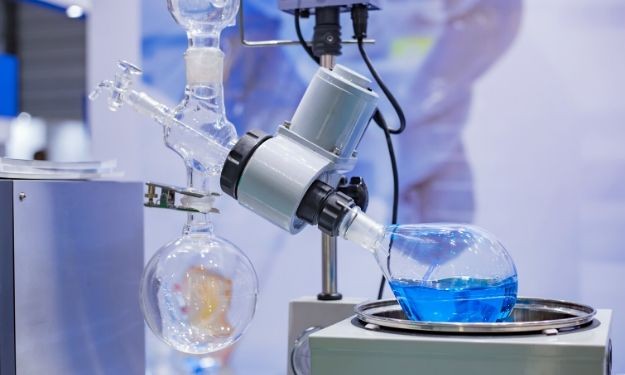Rotary evaporators, often referred to as rotavaps, play a crucial role in research laboratories by significantly contributing to sustainable laboratory practices. These instruments are integral for efficiently removing solvents from samples, a process known as evaporation. By optimizing this procedure, rotary evaporators help reduce energy consumption and minimize waste, aligning with the principles of sustainability in research. One of the primary ways rotary evaporators support sustainability is through their efficiency in solvent recovery. In traditional evaporation methods, such as simple heating or open-air evaporation, a substantial amount of energy is expended, and there is a higher likelihood of solvent loss. Rotary evaporators, however, utilize a rotating flask to create a thin film of the liquid, which increases the surface area for evaporation. This process is combined with reduced pressure, allowing solvents to evaporate at lower temperatures. As a result, rotary evaporators use less energy compared to conventional methods, making them a more eco-friendly option.

Furthermore, rotovap evaporators contribute to the reduction of solvent waste. The efficient recovery of solvents means that less material is discarded, and more can be reused or recycled. This is particularly significant in laboratories where solvents are expensive or hazardous. By reclaiming solvents, researchers not only cut down on material costs but also reduce the environmental impact associated with the disposal of hazardous chemicals. This aspect of solvent management supports the broader goals of green chemistry, which aims to design processes that minimize the generation of harmful substances. In addition to their role in solvent recovery, rotary evaporators also enhance the overall safety and effectiveness of laboratory operations. By operating under reduced pressure, these devices minimize the risk of overheating and potential thermal degradation of sensitive compounds. This controlled environment helps in maintaining the integrity of samples and ensures that valuable compounds are preserved. As a result, researchers can achieve more accurate and reliable results, reducing the need for repeated experiments and conserving resources. Rotary evaporators also streamline laboratory workflows, leading to improved productivity.
The automation capabilities of modern GWSI rotavaps allow for continuous, unattended operation, freeing up researchers to focus on other critical tasks. This efficiency not only accelerates research progress but also supports sustainability by optimizing the use of time and resources in the laboratory. Moreover, advancements in rotary evaporator technology, such as the integration of energy-efficient heating elements and improved vacuum systems, continue to enhance their environmental benefits. Newer models are designed with features that reduce power consumption and improve operational efficiency, further aligning with sustainable laboratory practices. In conclusion, rotary evaporators are vital tools in research laboratories that contribute significantly to sustainable practices. Their ability to efficiently recover solvents, reduce waste, and operate with lower energy consumption supports the goals of environmental conservation and resource optimization. By enhancing the efficiency and safety of laboratory processes, rotary evaporators help researchers minimize their ecological footprint while advancing scientific knowledge. As technology continues to evolve, the role of rotary evaporators in promoting sustainability in research will likely become even more pronounced, reinforcing their importance in modern laboratory settings.

